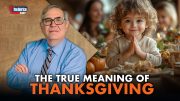
Dolly Parton’s Dollywood theme park has made some unwanted headlines after a lesbian visiting the park with her partner was asked to turn her T-shirt, which included the message “Marriage Is So Gay,” inside out to avoid offending other park patrons.
In early July, according to the Knoxville News Sentinel, same-sex partners Olivier Odom and Jennifer Tipton visited the park with some friends, including the friends’ eight- and five-year-old daughters. Odom wore a shirt with a message that was “intended to be a statement supporting same-sex marriage,” reported the paper. As the group entered the park, an employee taking tickets told Odom that she would have to turn her shirt inside out. “I questioned why,” she recalled to the Sentinel, “and he told me because it was a family park.”
While Odom complied, she and Tipton later contacted “the recently formed Campaign for Southern Equality, a support group for gay, lesbian and transgender people who are the subject of discrimination, harassment or violence,” the Sentinel reported. “The campaign’s Jasmine Beach-Ferrera suggested the couple write a letter to [Dollywood] as a first step.”
Odom wrote a letter to the park managers, asking them to implement “policies that are inclusive of lesbian, gay, bisexual and transgender people; conduct staff sensitivity training; and issue a public statement indicating that the park is inclusive of all families.”
Pete Owens, a spokesman for the park, explained to the Sentinel that the park has always been “inclusive,” and that Odom was not asked to leave the park, only obscure the objectionable message on her T-shirt.
The Dollywood website stipulates that clothing “with offensive words and/or pictures will not be permitted inside the park.” Reported the Sentinel: “Owens said park gatekeepers are regularly reminded to make sure dress in the park is appropriate, and guests are asked to cover up tattoos or turn shirts inside-out on a regular basis. He said gatekeepers are given the discretion to decide what is offensive and to politely offer ways to cover the offensive shirt or tattoo, including letting guests wear a Dollywood shirt.”
As to charges that the park actions were discriminatory against the homosexual couple, Owns told the paper that “Dollywood is open every day to everybody. If you’ll walk around the park you’ll see that it’s very ethnically and socially diverse. There are families of all kinds … We’ve been very inclusive of everyone and I’m proud of that record that we’ve had through the years.”
According to the Sentinel, park owner and country music celebrity Dolly Parton “came out in support of gay marriage in 2009 in an interview on CNN and has long been outspoken in support of gay rights.” In fact, Parton recently told the homosexual newspaper the Dallas Voice that “I have always loved my gay fans. They accept me and I accept them. We get along just fine. I am very proud and honored when they dress up like me or whatever they want to do!”
The homosexual couple said that Odom was not the only person wearing a shirt that might be deemed offensive, noting that other guests wore shirts with religious and political messages, and there were even some bearing the confederate flag. “Our whole deal is about marriage equality and being treated equally,” said Tipton. “It’s not that we’re trying to cause a big stir.” But forcing her homosexual partner to “turn her shirt inside-out because Dollywood is a ‘family park’ was one of the aspects that particularly upset” Tipton, the Sentinel related. “Families have so many different definitions these days … We were with our family,” Tipton insisted.
Not only did the incident receive wide coverage on TV and radio, in newspapers, and on Internet sites, but homosexual groups used the story as an opportunity to explore the issue of discrimination against same-sex couples and homosexual marriage in general.
For example the Advocate, the nation’s premier homosexual magazine and website, queried Dollywood’s spokesman Pete Owens on the park’s policy to determine if park officials were specifically targeting homosexuals. Owens responded by explaining that “thousands of times a day our front gate hosts are asked to enforce our dress code policy.” He emphasized that the park’s strict dress code “doesn’t have anything to do with who the people are or what their belief system is or with anything other than the fact that we try to prevent as best as we can … one of our guests being offended by something someone else is wearing.”
The Advocate was able to ferret out some criticism of Dollywood from Odom, who recalled being “in disbelief” over the park employee’s request that she hide the offensive slogan on her shirt. “I didn’t think it was the policy of Dollywood to discriminate against the LGBT community,” she said. “I was curious what he found offensive about the shirt — if it was the fact that it had the word gay on it or that it was in conjunction with the word marriage.”
The homosexual group Campaign for Southern Equality, which the same-sex couple first contacted for assistance in their grievance against Dollywood, insisted in a press release that what Odom experienced was nothing less than “an example of what can happen when a LGBT person or ally is out in public life: they are pressured to go back in the closet.” The organization stressed that Odom’s campaign against the park stemmed not only from her need to stand up for homosexual rights, but also to make certain that the children who were with her and her homosexual partner at the park “know that what happened was unfair and that it’s important to stand up for equality in such moments.”


